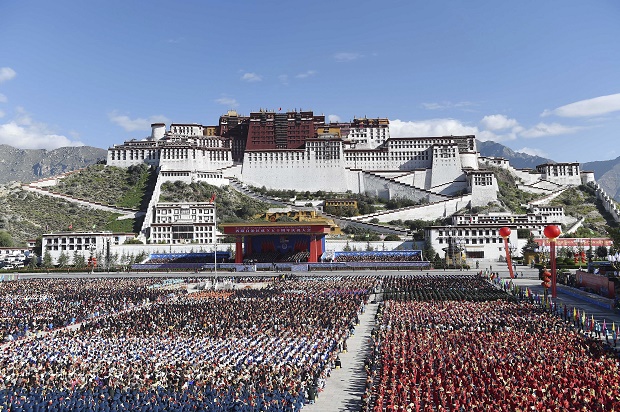
In this photo released by China’s Xinhua News Agency, a grand ceremony marking the 50th anniversary of the founding of the Tibet Autonomous Region is held at the square of the Potala Palace in Lhasa, capital of southwest China’s Tibet Autonomous Region, Tuesday, Sept. 8, 2015. AP
BEIJING — The Chinese government held a ceremony marking 50 years since it established Tibet as an ethnic autonomous region on Tuesday, lauding its economic successes while activists criticized its record on human rights.
Top political adviser Yu Zhengsheng stressed that Tibet was ethnically united during his speech in the Tibetan capital of Lhasa in front of the stunning Potala Palace, once home to the Dalai Lama and now a museum.
“During the past 50 years the Chinese Communist Party and the Tibetan people have led the transformation from a backward old Tibet to a vibrant socialist new Tibet,” said Yu to an audience of hundreds of schoolchildren, military soldiers and armed police applauding and waving flags.
People’s living standards have improved, infrastructure has been built across Tibet and its gross domestic product had grown 68 times, Yu said.
Tibet has been a source of controversy for decades, since Beijing sent troops to occupy the Himalayan region following the 1949 communist revolution. It says the region has been part of Chinese territory for centuries, while many Tibetans say it has a long history of autonomous rule led by a series of Buddhist leaders.
Free Tibet, a London-based rights group, said Beijing was trying to define Tibetan identity according to its priorities, and that Tibetans suffered restrictions on movement, censorship and lived in a system designed to punish opposition to the Beijing government.